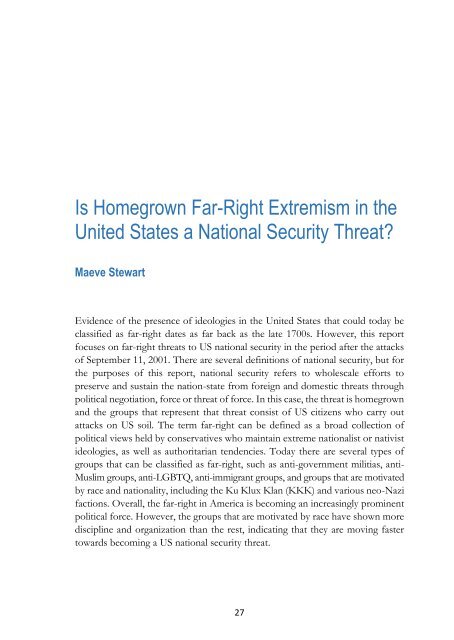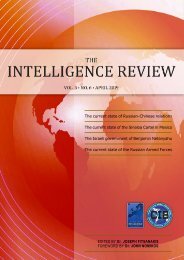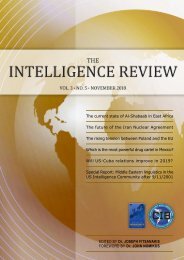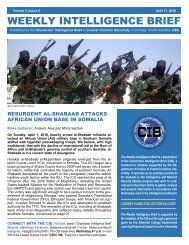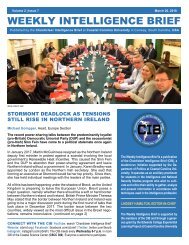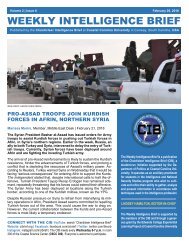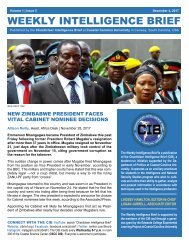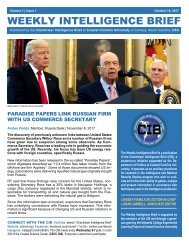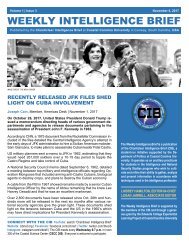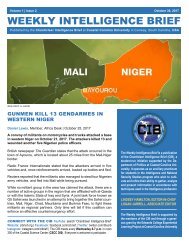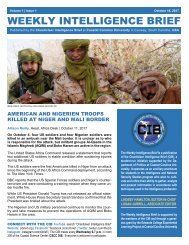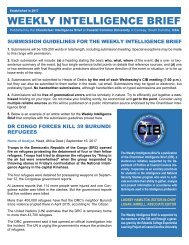The Intelligence Review | volume 2 | issue 4 |
This volume is the product of a collaboration between the European Intelligence Academy (EIA) and the Chanticleer Intelligence Brief (CIB), a student-run initiative supported by the Department of Politics at Coastal Carolina University in Conway, South Carolina, United States. Four CIB analysts tackle some of the most pressing and timely questions confronting intelligence observers today. Topics in this volume include the possibility of a war with North Korea, and the rise of far-right militancy in the United States. The volume also includes an assessment of the impact of the Islamic State in the relations between Russia and the United States, and a discussion of Turkish politics and its effect on NATO's cohesion.
This volume is the product of a collaboration between the European Intelligence Academy (EIA) and the Chanticleer Intelligence Brief (CIB), a student-run initiative supported by the Department of Politics at Coastal Carolina University in Conway, South Carolina, United States. Four CIB analysts tackle some of the most pressing and timely questions confronting intelligence observers today. Topics in this volume include the possibility of a war with North Korea, and the rise of far-right militancy in the United States. The volume also includes an assessment of the impact of the Islamic State in the relations between Russia and the United States, and a discussion of Turkish politics and its effect on NATO's cohesion.
Create successful ePaper yourself
Turn your PDF publications into a flip-book with our unique Google optimized e-Paper software.
Is Homegrown Far-Right Extremism in the<br />
United States a National Security Threat?<br />
Maeve Stewart<br />
Evidence of the presence of ideologies in the United States that could today be<br />
classified as far-right dates as far back as the late 1700s. However, this report<br />
focuses on far-right threats to US national security in the period after the attacks<br />
of September 11, 2001. <strong>The</strong>re are several definitions of national security, but for<br />
the purposes of this report, national security refers to wholescale efforts to<br />
preserve and sustain the nation-state from foreign and domestic threats through<br />
political negotiation, force or threat of force. In this case, the threat is homegrown<br />
and the groups that represent that threat consist of US citizens who carry out<br />
attacks on US soil. <strong>The</strong> term far-right can be defined as a broad collection of<br />
political views held by conservatives who maintain extreme nationalist or nativist<br />
ideologies, as well as authoritarian tendencies. Today there are several types of<br />
groups that can be classified as far-right, such as anti-government militias, anti-<br />
Muslim groups, anti-LGBTQ, anti-immigrant groups, and groups that are motivated<br />
by race and nationality, including the Ku Klux Klan (KKK) and various neo-Nazi<br />
factions. Overall, the far-right in America is becoming an increasingly prominent<br />
political force. However, the groups that are motivated by race have shown more<br />
discipline and organization than the rest, indicating that they are moving faster<br />
towards becoming a US national security threat.<br />
27


